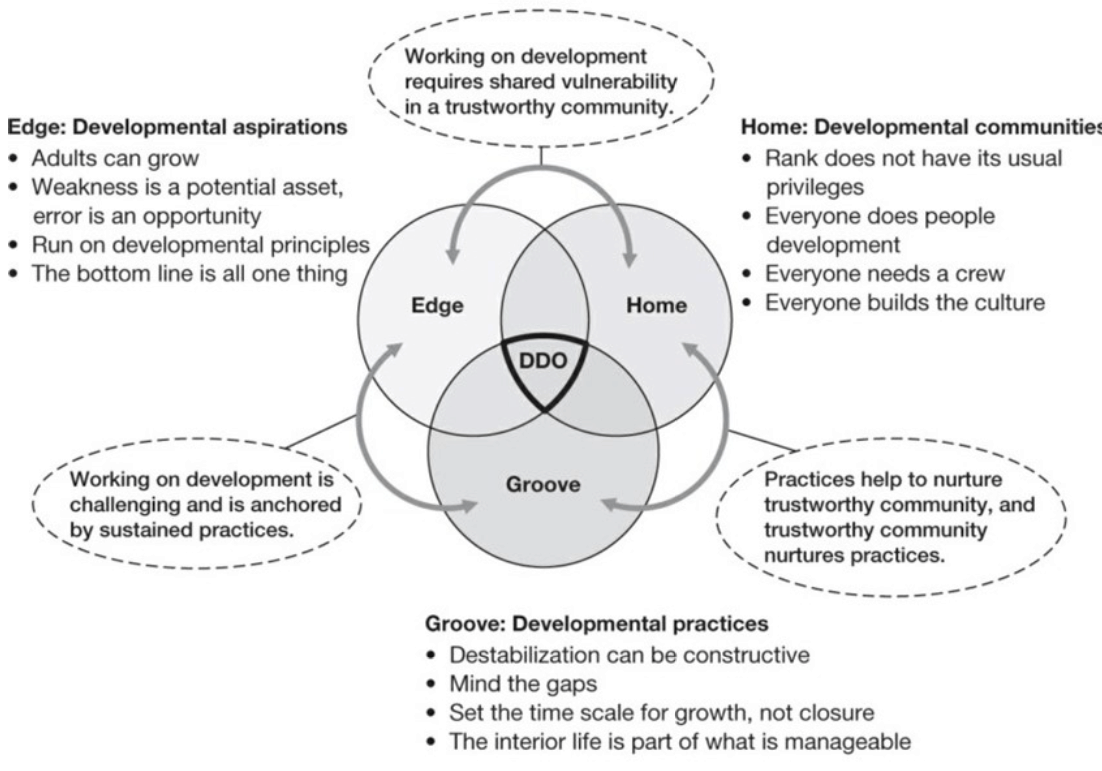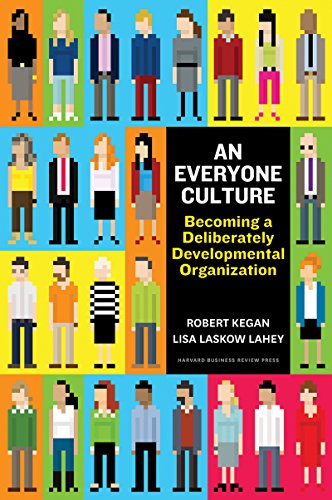What is important about this book
- This book takes us on a fascinating journey of an organization that puts personal and organizational
development at the center of its action. Becoming an organization of this type is not easy - The book describes how companies should be organized to provide real meaning to their employees.
The subtitle focuses on the model proposed by the authors, that of a so called “Deliberately
Developmental Organization” - An Assessment is also proposed to verify how today’s companies are “immune to change”; (despite their claims)
- The authors (Robert Kegan and Lisa Laskow Lahey, both professors at Harvard University), manage
to demonstrate not only the feasibility, but also the economic return of this approach and, analyzing the
theories on Personal Development applied to organizations, they notice that in companies:
– a correspondence between organization and individuals in terms of talent is very rare
– companies focus more on identifying the talent than on his/her development (for which they resort to
external sources such as trainers and coaches).
The Intentionally Development Organization
The concept of Deliberately Developmental Organization (DDO in the book) starts from here. DDOs are companies that have developed serene but demanding cultures, capable of bringing out the talents of all individuals, freeing them from their “hiding place”. There is a direct and dialectical relationship between the realization of human potential and organizational potential.
Quotations
Every day… most people spend time and energy covering their weak points, trying to manage the impressions made on others, showing themselves better, doing politics, hiding their inadequacies, their uncertainties, their limits. In a word, they hide (page 1)
Research shows that the main cause of burnout at work is not due to overwork, but to working too long without having opportunities for personal development (page 2)
Culture always wins, but not because it is placed above profit; profit remains the oxygen that keeps the company alive (page 176)
There really are jobs that can transform the most significant use we make of the hours of activity in our lives (page 288)
Structure and contents of the book
- The text is dense with field (with some case studies that are deepened in the course of the text) and academic research.
- Chapter 1 introduces the three companies used as example in the book, to show how DDOs work. They all start from a fundamental principle: in a DDO we have to take responsibility for the
functioning of our minds so that we can be present, be at work. - Chapter 2 examines the meaning that the authors give to the term Development, and examines how the concept of Development has evolved. They do not refer to Development as the act of increasing the “dimensions” of the role of an employee, but rather to the Development of the person in one’s career. They then review the state of adult development theories and how they have evolved in the years. In the past, it was thought that development could not occur in adults. Today, it is common ground that the human mind develops in several stages, linked to three different ways of perceiving the world. The authors argue that in the past, in organizations based on mechanical metaphor, it was enough for workers to be at the first level, the level of the socialized mind. Today this is not enough: companies are increasingly asking people to reach the level of the Self-Transforming Mind. It is therefore necessary to accompany this evolution with the right tools, and Development takes on its role as a corporate value itself.
- In chapter 3, the authors describe the key attributes of DDOs, which are grouped into three dimensions: Edge, which is composed of the aspirations for development of individuals and organization; Home, which is the way in which development takes place through the communities of practice and Groove, which is the set of the implemented Development Practices.

Figure 1: The three dimensions of a DDO. Source: Robert Kegan and Lisa L. Lahey, An Everyone Culture, page 85
- Chapter 4 becomes more specific about the tools and is titled In The Groove. The basic concept is that Development is not an one-off activity, but rather a continuous practice. These are tools aimed at constantly feeding the practice of Development. We can find a comparison in the Agile methodology, which creates “ceremonies” and “rituals” to respect, in order to continuously develop the practice of self-improvement and continuous innovation.
- Chapter 5 examines the business value generated by this way of working, trying to contrast the typical reaction of the traditional managers facing rebel deviations from the traditional organizational structure. The Case Bridgewater is probably the most notable: it is one of the world’s leading (and most profitable) financial fund management companies, and practicing such a culture was a turning point, as proved by the results.
- Chapter 6 focuses on the Edge components.The basic idea expressed by the authors is that DDOs continually work on their limit, reconsidering their blind spots. And this is where Development really takes place. The authors propose an interesting Assessment to evaluate how an organization is Immune to Change, in order to show how capable it is of acting on the Edge.
- Chapter 7 is about how to create home. It is the path to becoming a DDO. This is not an easy journey and the authors effectively identify that it is the Top Management that should make the decision and start the journey. Certainly, it is also possible to undertake individual or departmental initiatives, but with strong limits. It is crucial to maintain a holistic vision that holds organizational and individual components ogether, as well as internal and external perspectives.
Conclusion
An Everyone Culture is a true discovery of Rebellion.
Through the purely strategic idea of talent management and personal development as founding components of corporate culture, the authors suggest that we must be able to draw on this incredible wealth that is joint development of Culture and Talent in order to truly develop the Organization of the future.
Sergio Caredda
Digital Transformation Lead – VF Corporation
A version of this article appeared on my personal blog
Twitter: @sergiocaredda
